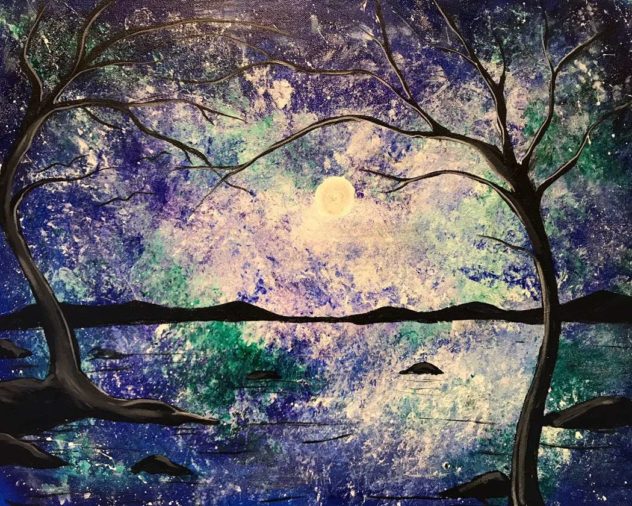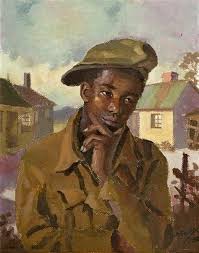12 Guilty Pleasures for Memoirists
Writing memoir is hard work. You spend hours gazing into your past, mining memories for emotions and details, and coming to insights that
Author, Editor of Memoir & Narrative Nonfiction
Writing memoir is hard work. You spend hours gazing into your past, mining memories for emotions and details, and coming to insights that
You haven’t heard from me in awhile. I’ve been in hibernation. Ever have one of those periods? I’ve been finishing a book and–let’s face it–grieving the loss of my mother and my dad, too, who died a few years earlier. I’ve been trying to figure…

For thirty-five years, I have helped writers of all skill levels achieve their goals of putting together stories about their lives, ranging from magazine-like travelogues, to family portraits bordering on biography, to thinly veiled fictional accounts, to book length memoirs of childhood and mid-life adventures.
My work now has transitioned from those forms of personal storytelling to a more probing exploration of The Big Questions and how we make sense of our lives via story.
This growth has been spurred by multiple losses, but also by this dark time we are entering, as a culture and a nation. I find harder questions more compelling, like: What do stories mean? What effect do they have on our lives? How can we use them to shape reality?

Narrowly threaded manuscripts of reminiscences about life events and pastimes do not meet the time.
I find myself interested in mucking around in the gray areas of life. So little black and white, really.

So much that can’t be known, so much demanding compassion, an honest look at human choice, and a layered understanding of how the stories we tell can be used to make readers think beyond the surface spin of our social media culture.
As we move into 2025, I send out this missive to announce that my work now revolves around making stories that are more complex than the standard coming-of-age tale, the A-to-B travelogue, or the autobiographical victory lap. Memoir that includes deep thinking will catch my attention, but lesser works will not.

We expect a literary novel to take us down to our human core by making us think and feel about all that which is inexplicable. I want memoir of that sophistication. I seek writers who are serious and searching, and I challenge all you who read this to move your writing, and your thinking, from the I-went-here-and-did-this approach to the more difficult task of raising the tent of your story on the messy questions of why we are the way we are.
In addition to serious book-length projects, I welcome dedicated creators of shorter forms of personal storytelling—from YouTube videos to Substack articles to anything in between—who want to develop ideas explored in those shorter forms into longer literary projects, whether that be memoir, a fictionalized account of personal experience, or some hybrid invention.

Now is the time to go deep. Serious times require serious artists who are willing to ask difficult questions about human behavior and speak plainly the thorny answers.
Only in this way will our stories be of great enough weight to meet the needs of this time that is fast upon us.
I’ve been absent from this newsletter for some time. Life intervenes, as the saying goes, but because I am passionate about crafting stories from life, I thought I’d tell you a story about why I’ve been gone for awhile, and in that story you might…
I don’t know about you, but for me, this last year has been one long blur of unexpected events, time consuming changes to the daily round, and disorienting new “norms” that only end up being normal for a week or two. In the midst of…
These past months of lockdown have given me many manuscripts to evaluate, and ample time to think about why so many memoirs need revision, even when the writer thinks the story is done.

Here’s how the root problem can arise: If you write memoir from your shimmering images—which I define as vivid memories that stay in your mind as if they were snapshots—and most memoir writers do since the root of memoir is memory, you begin by collecting a bunch of those indelible memories and then lining them up to find a thread for your narrative. But, the problem is: memoir is not just a reiteration of these frozen memories. It more nuanced than that.
What needs to happen is that you must find inside those images a core idea they are exploring (an underlying notion linking them together—and there always is one).
By their very nature, these bright shining images remain in your memory because they contain a coded message about what is of value to you. In that coded message is the core idea that links the memories together.
And you need to find it.
And it may take writing a lot of shimmering images to figure it out.
And that is okay.
Because ultimately, if you don’t find the core idea, you will simply be recording a series of stand-alone memories.
What separates a lot of aspirational memoir from successful memoir is the core idea that ties together the whole shebang. Having it firmly established will guide the way you shape each memory you write—what you highlight, what you ignore.
Let’s look at an example. Say, you are writing about your mother, and specifically your teens as you were coming of age and learning about sex, let’s say, and all the complications you went through with your mom during that slim set of years (A tight focus is essential to memoir.)
And lets’ say you are working with a series of very memorable moments (shimmering images)—conversations you had at parties, late nights coming home sneaking in, grounded evenings: arguments, laughter, silly mistakes.
Many writers use these memories as scaffolding for the story, lining them up, and transcribing them, but even if you do that and provide some interior exploration of the thoughts of the girl you were then, and hindsight reflection from the woman you are now, that’s only part of what makes a memoir.
To be a cohesive story, you need to sculpt those memories to show you coming to terms with something, remedying some unresolved situation that still tugs at your heart and mind.
And to do that, you need to be able to name what your story is about.
There’s this wonderful video clip I’m sharing below that will help you do that.
And yes, Jonny Geller’s talking about novels in this clip, but his advice holds true for all good stories.
I’ve been thinking more this month about how to find your way into the wealth of material that is your life, and compose from it a memoir. I wrote about this last month, and actually in all my columns since the pandemic began, and the…
When the pandemic started, I wrote about using stay-at-home time to work on your memoir, and then followed up with a column on the basics of organizing your shimmering images—your vivid memories.With back-to-school mentally kicking in (even if back-to-school is unfamiliar), it’s time to find…
Last month I wrote about using your time, while at home, to work on a memoir and suggested the basics for getting started.

This month here’s the next step: what to do with all those memories you’ve been stockpiling, or with all the stories you’ve already written. Do you use them to plot your memoir? Should you create an outline, and stuff all the memory stories into it? It’s tempting to try.
But my belief is that in the early stages, it’s best to write freely, without any structure hanging over your head. The heart of your memoir—what it’s really about, and what will guide its shape—is best found by letting yourself suss out the emotional hot spots in memory and record the details before you define a story line.
Still, I know you want to master the shape of your story sooner, rather than later. Hence, here’s a tool for control: Create a series of folders (hard copy or digital) and store inside them the memory fragments you’ve been gathering—with catchy titles to remember them by: Heron; Thunderbird cruising Hampton Street, whatever. Or file the stories you’ve already written in these folders.
Label the folders with general topics. If a lot of your memories revolve around your mother, label one folder: Mom. Or maybe you’ve been remembering a lot of stuff about your son. Put his name on one of files. Maybe you’ve been writ ing about a place you used to live, or somewhere you’ve traveled: Aunt Louise’s house; The Beach; Indonesia. Group all those stories in a folder with that name.
ing about a place you used to live, or somewhere you’ve traveled: Aunt Louise’s house; The Beach; Indonesia. Group all those stories in a folder with that name.
It’s pretty rudimentary stuff, I know, this kind of organization, but it can, miraculously, give you a lot of power and help you see new connections, and the gentle structure and those connections will give you glimpses of central concerns in your life.
And those concerns will lead you to your plot.
As for the idea of coming out of the gate with a plot for your memoir and typing up an outline—before you’ve even mined your memories—chances are, if you feel compelled to do that, you will shortly feel stuck.
And why is that?
Because crafting a plot implies you know what the narrator (you) wants to achieve, what you are trying to show with your story, and usually when you first begin writing, you don’t have a clue.
That’s not a bad thing; it’s just the reality of writing memoir.
Once you get a handle on what you are writing about—your central concerns— you can start shaping the story arc.
But until you have gotten past that first burst of memory and emotion, and begun to understand the larger forces behind your memories, you are better off just puttering along: recalling, writing, filing.
What you are looking for in this process are the pivotal memories that will gird the structure of your memoir. Those pivotal memories are the key, but first you must find them, and that takes some free-form puttering—not plotting—for now.
We are all going to have time eddying around us in these coming weeks, as life shifts into a new and unfamiliar rhythm, but once we strike that rhythm—whatever it is for each individual household—once we get past the panic and stock piling of supplies,…
People talk. And in your memoir, even if you are the kind of writer who leans more toward the meditative/reflective style of memoir writing—at some point, your characters will open their mouths and speak. So, the question becomes: Are you allowed to invent? Obviously, you…

It was 1973 when Gene and I settled into a pattern of living together in my Canoga Park, California apartment where I’d lived when I was married and where my toddler son, Jim, and I continued to live after my divorce. Gene was the only black person in the complex. We socialized with our neighbors and lived happily in our little neck of the woods until there was a turnover in the managers.

I was sitting poolside, watching Jim play in the wading pool, when two police officers entered the front gate and walked towards the main building. Gene said he was shooting pool when the policemen approached him and said, “Put your pool stick down,” as they fingered their billy clubs. He looked for a place to hang up his stick and again heard, “Put the pool stick down!” Confused, he laid the cue on the table. The officers handcuffed him stating, “You’re under arrest.” They didn’t tell him why. This was his first arrest in 32 years and that included twenty years growing up in Alabama, the epitome of the Jim Crow South, where young black men were frequently arrested for nothing. He’d never expected treatment like this in California.
Soon, the officers I’d seen earlier, marched Gene, handcuffed and bewildered, out the door and down the stairs. They paraded him past the pool area. Jim started to cry. Confused and shaken, I grabbed Jim’s hand and ran back to our apartment.

I paced back and forth holding my son and patting his back to calm him. All the while I wondered what was happening, what I should do, and unable to do anything but wait.
Later Gene told me that the police drove ten miles to the Van Nuys jail and placed him in a cold room alone with a table and two chairs—just like on Law and Order. A detective entered. “Do you know why you’re here?” he asked.
“I haven’t a clue,” Gene answered.
“Do you know a Vivian Kowalski?”
She was the new manager, and Gene told them he knew her. The agent explained that she had accused him of putting a screwdriver to her side and demanding that she have sex with him or he would harm her two children. He was horrified and told the cops that was a lie. In fact, the police had merely asked her how things were going. Apparently, she’d taken that opportunity to invent a story, a racial hoax, an act of fabricating a crime and blaming it on a person of another race.
Gene had been marched away at one o’clock. I received his one promised phone call two hours later. “Annie, I’m at the Van Nuys jail,” he said. “I need you to bail me out.”
“I’ll get there as soon as I can,” I answered.
Once out on bail, Gene phoned the apartments’ parent company, Larwin, and explained what had happened. He told them, “This is a case of racial housing discrimination. Your managers didn’t like a black man living with a white woman, so they accused me of a felony as a ruse to get me out of the complex—even if that meant going to jail!” Larwin tested Gene’s theory and fired the managers.
On the day of Gene’s arraignment, we sat on a wooden bench in the cavernous marble hallway of the criminal justice building where we met Larry Trygstad, the attorney I had hired. We held hands. After an hour, Larry left and returned with the news that Vivian hadn’t shown up. The charges were dropped. The nightmare was over. We felt vindicated to learn that Vivian and her husband had fled to Canada, from whence they had come, to escape prosecution for violating the Fair Housing Act, Title VIII of the Civil Rights Act of 1968.
Gene and I rethought a sacred principle of the American criminal justice system, holding that a defendant is innocent until proven guilty. Now we knew that an accusation was all it took for a person to get arrested—especially for a black man.
Forty-six years later Robert Mitchell, a black California man, sued the city of Bakersfield claiming he was wrongfully arrested after refusing to give officers his name during a traffic stop. He asserted his rights because “I’ve had past incidents where I’ve been arrested and it was unlawful and I didn’t know my rights.” The city agreed to a $60,000 settlement in 2019, and unfair treatment of black men continues.
This post was submitted by Los Angeles writer Ann Carnes, at work on her memoir: Miss Ann and Her Man.

Click here to read my blog post about Writing Memoir to Fit This New Time.